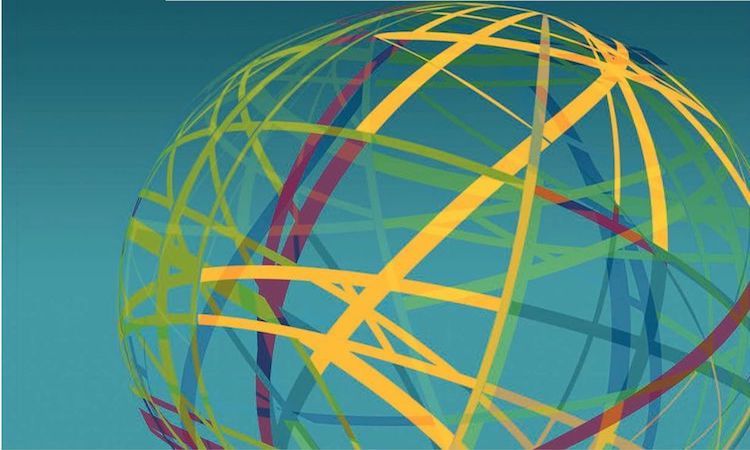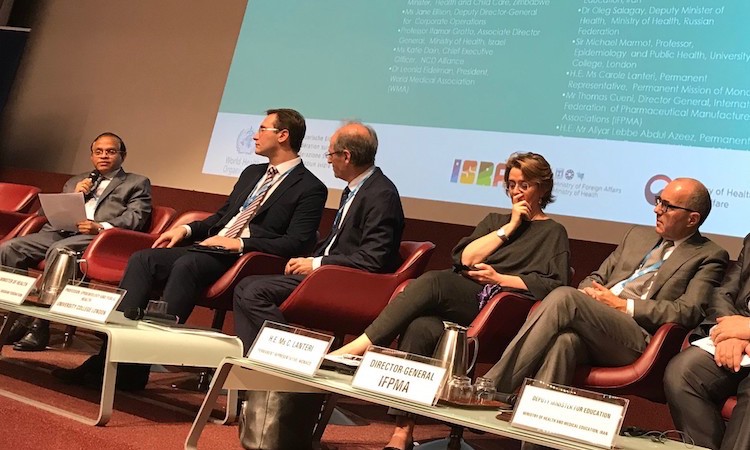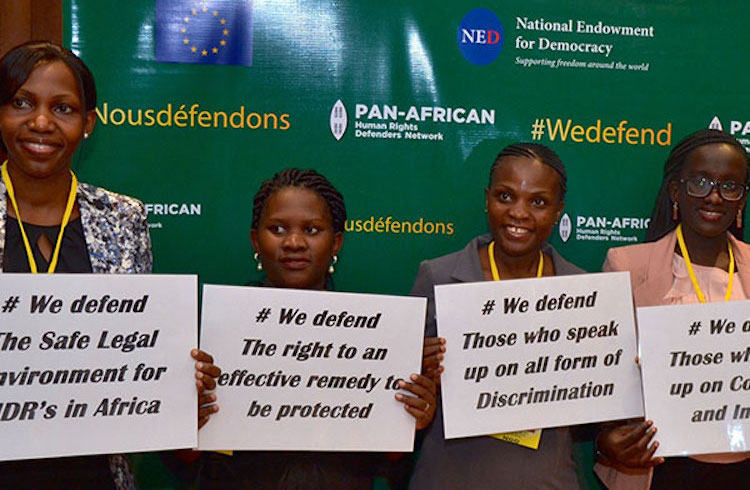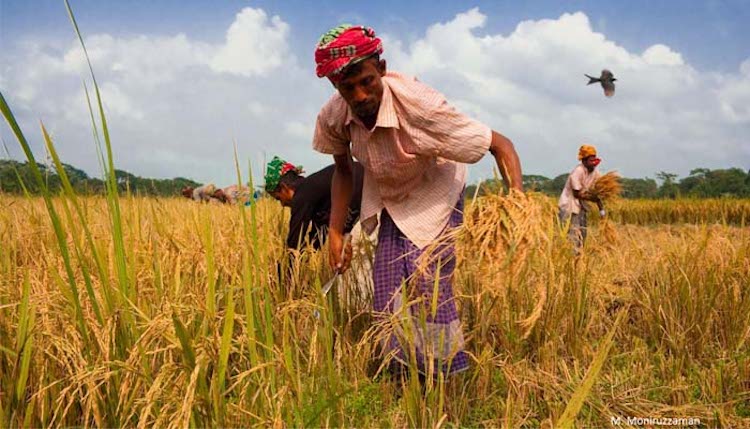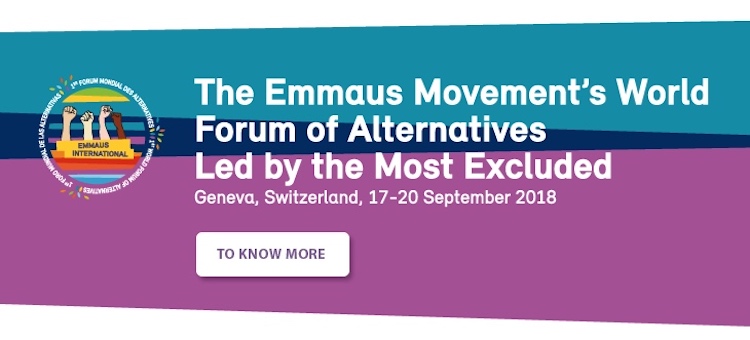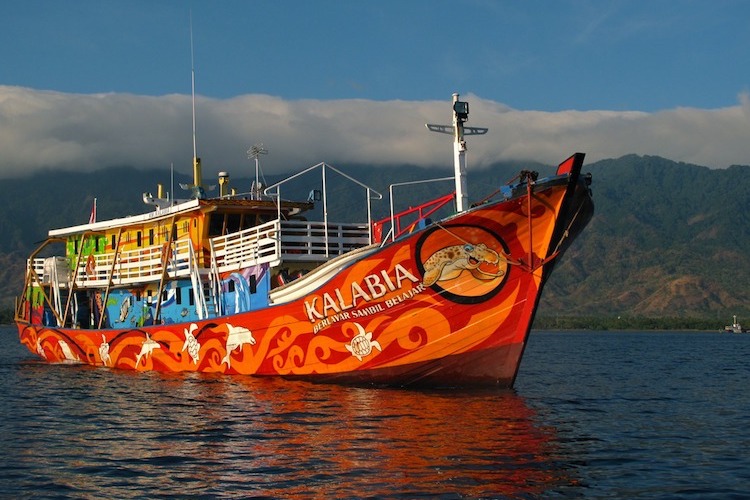By Anna Kucirkova UNIVERSAL CITY, Texas (IDN-INPS) – Fresh water is the most important resource for human life on earth. People can survive far longer without food than without water, and virtually all of our food sources require fresh water to grow or create. Global climate change and the exponential increase in population has led […]
Decline in External Finance to Developing Countries Endanger Global Goals
By Krishan Dutta PARIS (IDN) – “Donor countries have not followed through on their 2015 promise to expand development finance flows,” said OECD Development Co-operation Director Jorge Moreira da Silva, launching a landmark report at the Paris Peace Forum. He was commenting on an important finding of the report that external finance to poor countries […]
WHO Determined to Prevent Noncommunicable Diseases
Sri Lanka Co-Chaired Meeting Focuses on Diseases Killing the Poor By Jamshed Baruah GENEVA (IDN) – Noncommunicable diseases (NCDs) pose a serious global development challenge. As the year three of the implementation of the 2030 Agenda for Sustainable Development and 17 Sustainable Development Goals (SDGs) comes to a close, evidence shows that the international community […]
World Summit Pledges To Protect Human Rights Defenders
By Jamshed Baruah PARIS (IDN) – A diverse group of 150 human rights defenders from around the world, who gathered for a three-day summit in Paris, have agreed on a landmark action plan which will be presented to the United Nations in December. The plan focuses on how to protect and promote the work of […]
Island Nation Seychelles Praised for Launching World’s First Sovereign Blue Bond
By Jaya Ramachandran NEW YORK | BALI (IDN) – The Government of the Republic of Seychelles, an archipelago of 115 granite and coral islands in the Indian Ocean, off East Africa, has been acclaimed for showing “the leadership to create the world’s first sustainable Blue Bond”. The pioneering financial instrument was launched within four weeks […]
Inclusive Insurance for a Sustainable Future
By Katharine Pulvermacher* The author is Executive Director of Microinsurance Network. LUXEMBOURG (IDN) – Life is hard enough for small-scale farmers, businesses, families and communities who live with the daily threat of losing everything to natural disasters, extreme weather or other catastrophes. Even if you are insured, it can be tough to start again after […]
Bribery Rampant in Over Half of Global Trade
By Sean Buchanan LONDON (IDN) – There are many losers and few winners when companies bribe foreign public officials to win lucrative overseas contracts. In prioritising profits over principles, governments in most major exporting countries fail to prosecute companies flouting laws criminalising foreign bribery. What is missing, according to Transparency International – the global coalition […]
The Call of the Most Excluded
By Emmaus International* “It is not enough to take action, we must overcome, that is to say, take more action than the forces moving in the other direction”. Abbé Pierre GENEVA (IDN) – The World Forum of Alternatives led by the most excluded was held in Geneva, Switzerland, from September 17-20, 2018 on the invitation […]
UNESCO-Japan Prize for Organizations in Namibia, Indonesia and Estonia
By Robert Johnson PARIS (IDN) – UNESCO , the United Nations Educational, Scientific and Cultural Organization, has nominated three non-profit organizations in Namibia, Indonesia and Estonia for outstanding projects aimed at promoting the role of education in connecting the social, economic, cultural and environmental dimensions of sustainable development, known as Education for Sustainable Development (ESD). […]
Rounding Up Coca-Colonization – Will the UN Human Rights Council Stand Up For The People?
By Jayasri Priyalal The writer is the Regional Director responsible for Finance Sector of UNI Global Union, Asia & Pacific Organization – Singapore. SINGAPORE (IDN) – Regulatory capture and the influence of powerful Transnational Corporations in lobbying the policy makers towards their own advantage is no secret. Putting profits before people and planet is their […]


